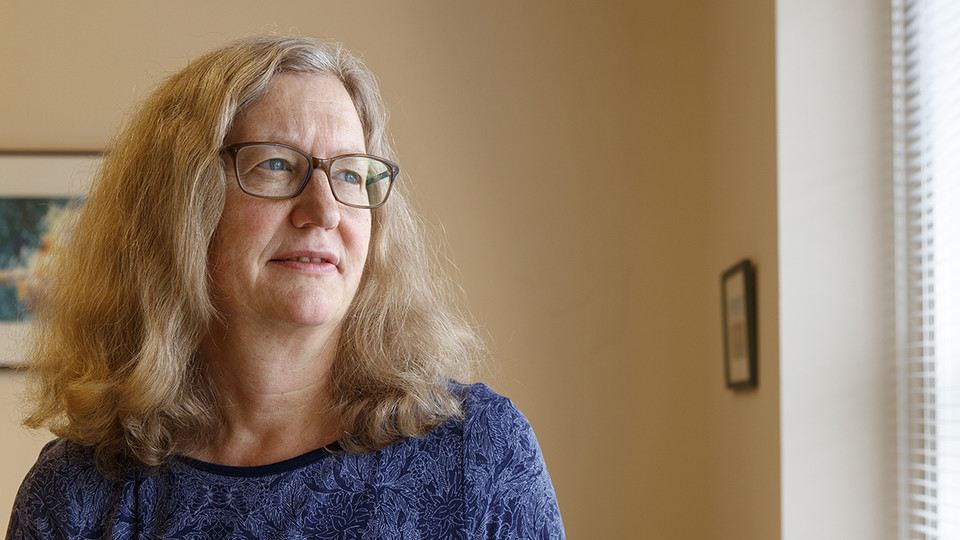
by Courtney Van Hoosen | Office of Global Strategies
Share on Facebook | Tweet This | Post on LinkedIn
Nebraska would not be the same without the incredible faculty at the university. This section highlights faculty that have been featured across campus in the last month for their research achievements, academic work, and journey to Nebraska.
Meet some of Nebraska’s incredible faculty, including the university’s first female faculty to join the American Academy of Arts and Sciences, and ground-breaking researchers exploring cancer treatments, rural immigration, nanowires and global food sources.
Jacobs joins American Academy of Arts and Sciences
For the second time in a year, Margaret D. Jacobs has broken new ground for faculty at the University of Nebraska–Lincoln. After being named Nebraska’s inaugural Carnegie Fellow in April 2018, the Chancellor’s Professor of History has earned membership in the American Academy of Arts and Sciences. Jacobs’ selection is a first for female faculty at Nebraska and marks the second time a Husker professor has earned the honor. She is among more than 200 new members announced by the academy on April 17.
Read More
Researchers pinpoint tumor-related protein, slow progression of cancers
Locking a biochemical gate that admits fuel into immune-suppressing cells could slow tumor progression and assist the treatment of multiple cancers, says new research from the Wistar Institute, the University of Nebraska-Lincoln and others. Published April 17 in the journal Nature, the study found elevated levels of fatty acid transporter protein 2, or FATP2, in a type of cell known to muffle immune responses and impede cancer therapies. After isolating tumorous cells from humans and mice, the researchers also discovered substantially higher numbers of an energy-granting lipid that FATP2 helps produce and traffic into cells. The Nebraska team is led by Concetta DiRusso and Paul Black.
Read More
Study of sorghum-munching aphids earns NSF award
A tiny invader’s gooey march through U.S. sorghum fields continues to devastate crop yields, forcing some farmers out of the sorghum business despite the crop’s increasing importance. Sorghum, an important global food source, is growing in popularity because of its ability to withstand drought and heat, which are worsening under climate change. University of Nebraska–Lincoln entomologist Joe Louis is investigating ways to help sorghum naturally resist sugarcane aphids, the crop’s most damaging pest in the United States. Louis earned a five-year, $1.5 million Faculty Early Career Development Program award from the National Science Foundation to continue his research.
Read More
Husker duo discovers perfectly imperfect twist on nanowire growth
For years, researchers have been trying to find ways to grow an optimal nanowire, using crystals with perfectly aligned layers all along the wire. A team of Nebraska Engineering researchers — Peter Sutter, Eli Sutter and Shawn Wimer — sees an advantage to natural imperfection.
Read More
Choi uses census data to examine health outcomes of rural immigrants
Although studies have revealed that immigrants and ethnic minorities are among those at greatest risk for poor health outcomes, little research exists on rural immigrants who experience a disproportionate burden of poverty and economic hardship. New work from Evan Choi, associate professor of child, youth and family studies, is providing new insights into this uncharted area of study.
Read More
To submit a faculty or staff feature for the next edition of the Global Nebraska newsletter, please contact Courtney Van Hoosen in the Office of Global Strategies at cvanhoosen2@unl.edu.